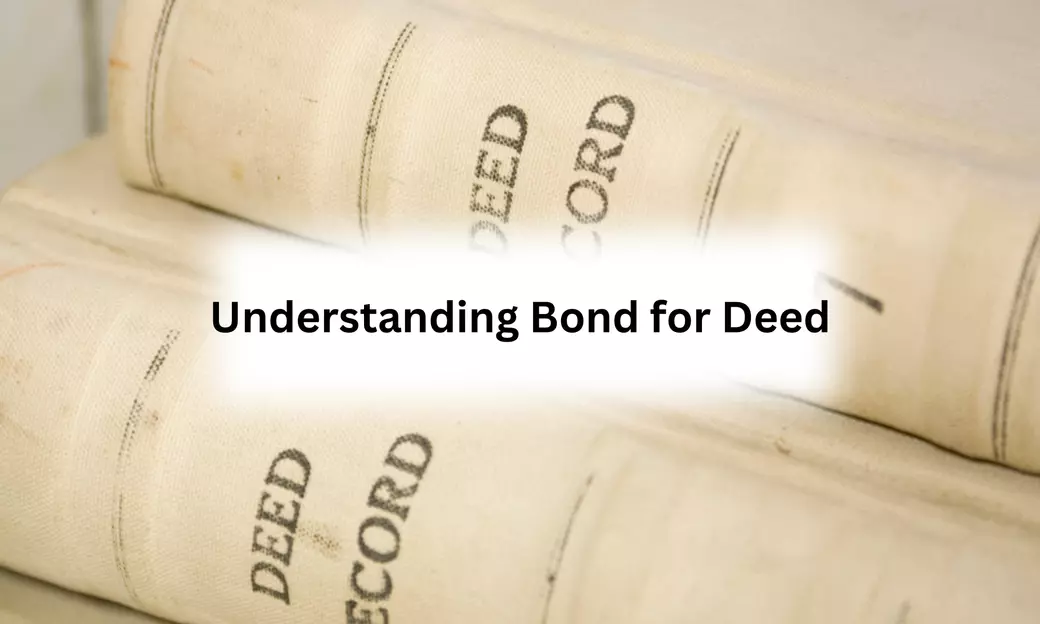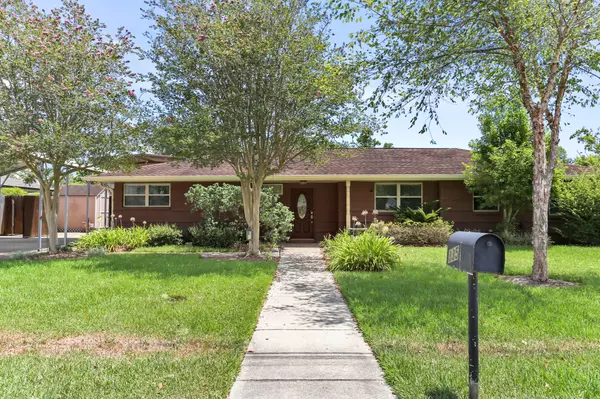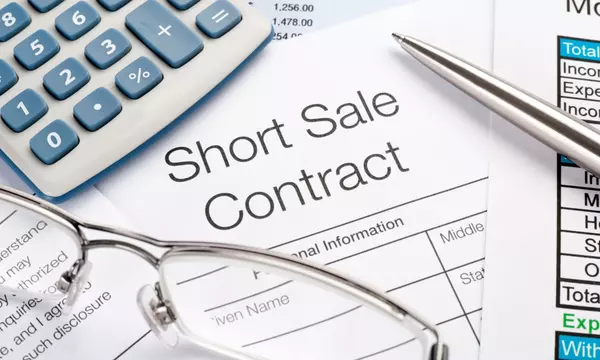Understanding Bond for Deed in Real Estate Transactions

In the realm of real estate, various terms and concepts can seem intricate at first glance. One such term that often raises questions is "bond for deed." This arrangement, also known as a contract for deed or land contract, presents a unique approach to property transactions that is distinct from traditional mortgage financing. Let's delve into what a bond for deed entails and how it can impact real estate transactions.
Defining Bond for Deed
At its core, a bond for deed is a legal agreement between a property seller and a buyer. In this arrangement, the buyer agrees to purchase the property directly from the seller through installment payments over time. Unlike a typical mortgage where a financial institution lends money to the buyer, in a bond for deed, the seller essentially acts as the lender. This setup can be particularly beneficial for buyers who may not qualify for traditional financing or prefer an alternative route to homeownership.
Key Components
-
Purchase Price: The initial purchase price of the property is outlined in the bond for deed agreement. This amount is often negotiated between the buyer and seller.
-
Installment Payments: Instead of a lump-sum payment, the buyer makes regular installment payments to the seller. These payments typically cover the principal amount plus any agreed-upon interest.
-
Interest Rate: The bond for deed agreement specifies the interest rate, if any, applied to the outstanding balance. This rate is agreed upon by both parties and can vary based on market conditions and negotiations.
-
Title Transfer: While the buyer occupies and maintains the property, the legal title remains with the seller until the full purchase price is paid off. Once all payments are completed, the title is transferred to the buyer, completing the transaction.
Advantages of Bond for Deed
-
Accessibility: Bond for deed arrangements can be more accessible for buyers who may face challenges obtaining traditional financing, such as individuals with less-than-perfect credit histories or self-employed individuals with irregular income.
-
Flexibility: Both parties have the flexibility to negotiate terms that suit their needs, such as the down payment amount, installment schedule, and interest rate. This flexibility can lead to more customized agreements compared to rigid mortgage structures.
-
Faster Process: Since bond for deed transactions typically involve fewer bureaucratic processes than traditional mortgages, they can often be completed more quickly, allowing buyers to move into their new property sooner.
-
Investment Opportunity: For sellers, offering a bond for deed can be a way to attract buyers and generate income from the sale of their property over time, potentially yielding higher returns than a one-time sale.
Considerations and Risks
While bond for deed arrangements offer advantages, it's crucial for both buyers and sellers to understand the associated risks:
-
Title Risk: Until the buyer completes all payments and the title is transferred, there is a risk that the seller's creditors or legal issues could impact the property's title.
-
Default Concerns: If the buyer fails to make payments as agreed, the seller may need to initiate legal proceedings to regain possession of the property, which can be a complex and time-consuming process.
-
Market Fluctuations: Changes in property values or interest rates can affect the overall cost and feasibility of the bond for deed agreement for both parties.
Conclusion
In summary, a bond for deed offers an alternative pathway to property ownership, providing accessibility and flexibility for buyers and potential income streams for sellers. However, like any real estate transaction, it's essential for both parties to conduct due diligence, understand the terms thoroughly, and seek professional advice to mitigate risks and ensure a successful and equitable agreement.

GL Realty Group LLC
Office ☎️ 985-308-1460
Call/Text 📲 985-859-6589
Licensed by the Louisiana Real Estate Commission
Categories
- All Blogs (55)
- Bayou (1)
- Boat Access (2)
- brokerage (15)
- business (1)
- Buyer (32)
- CMA (1)
- Commercial Real Estate (3)
- Development Opportunity (1)
- first time homebuyer (26)
- Flip House (4)
- Flood (3)
- Flood Insurance (6)
- foreclosure (1)
- Harahan, LA (1)
- Highest Price (6)
- HOA (1)
- home (36)
- Homeowners Insurance (6)
- homeownership (38)
- hurricane season (1)
- Insurance (4)
- Interior design (7)
- Investor (14)
- Land for Sale (3)
- landscaping (4)
- Loan Officer (2)
- Louisiana (31)
- Monthly Payment (2)
- Mortgage (10)
- New Construction (10)
- New Orleans (1)
- Northshore (11)
- Property Management (4)
- Real Estate (35)
- Real Estate Agent (11)
- Real Estate Brokerage (16)
- realtor (11)
- Renovations (3)
- rentals (4)
- Residential Real Estate (22)
- retail (1)
- River Road (1)
- Seller (14)
- Short Sale (1)
- Southshore (17)
- Subdivision (1)
- swimming pool (3)
- Vacant Land (1)
- Vacation rental (1)
- valuations (2)
- Water Community (2)
- Waterfront (2)
- Wetland (1)
- Wooded Land (1)
- Zestimate (1)
- Zillow (1)
Recent Posts











